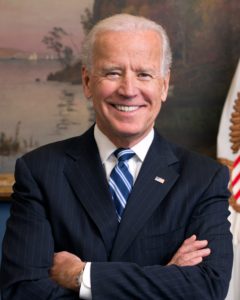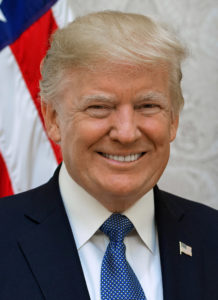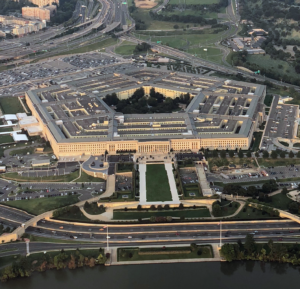WIth President Trump’s ouster of several key Pentagon and Homeland Security officials, including Secretary of Defense Mark Esper, and replacing them with people who are loyal to him, an increasing number of mainstream types are expressing concern about the possibility of a Trump coup, one in which he refuses to relinquish the presidency to Joe Biden.
Mind you, I’m not talking about your standard conspiracy theorist here. I’m talking about standard mainstream journalists who are expressing concern over this possibility.
Margaret Sullivan, for example, the media columnist at the Washington Post, writes, “How do you cover something that, at worst, lays the groundwork for a coup attempt and, at best, represents a brazen lie that could be deeply damaging to American democracy?”
Erica De Bruin, an assistant professor of government at Hamilton College, has a slightly different perspective, but one that goes down the same road as Sullivan. She writes in the Post that technically “a coup attempt involves an illegal, overt effort by civilian or military elites to remove a sitting executive from power.” Thus, she calls any attempt by Trump to remain in office a “‘self-coup’ — or, using the Spanish term, an autogolpe — in which a head of state attempts to remain in power past his or term in office.”
Joe Biden’s campaign has an interesting take on the possibility that Trump might decide to remain as president. Andrew Bates, Biden’s “director of rapid response” (whatever that means) exclaims, “As we said on July 19th, the American people will decide this election. And the United States government is perfectly capable of escorting trespassers out of the White House.”
But Bates, and perhaps Biden too, misses the point with that silly statement. If a private citizen trespasses in the White House, everyone, including the president, is on board to evict him. The president’s forces simply mobilize to evict the trespasser.
But that clearly is not the situation we would have if Trump refused to vacate the presidency. Here, we would have the president himself who would be remaining ensconced in the White House. The president is part of the executive branch of the government. Since he wouldn’t be leaving, he obviously would not be participating in escorting himself out of the White House.
How about the members of Congress? Or the justices on the Supreme Court? For some reason, I don’t see any of these people marching to the White House to forcibly evict Trump from office.
The big elephant in the room that no one wants to talk about is the national-security establishment, specifically the Pentagon, the CIA, and the NSA.
If Trump orders his new Secretary of Defense to mobilize troops to prevent his ouster from the presidency, what then? Will the troops obey his order? There is a good possibility that they would. Soldiers obey orders. While they take an oath to defend the Constitution, their real loyalty is to the president. Moreover, if a soldier refuses to obey orders, he can be quickly replaced or, even worse, shot, which would be a powerful incentive for the rest of the military to obey orders.
When the Founding Fathers expressed fierce opposition to “standing armies,” they were referring to the type of military that characterizes the U.S. government today — one that is enormous, permanent, and omnipotent. Their concern was that a standing army under the control of a president is a sure-fire recipe for the destruction of liberty.
In 1961, when President Eisenhower expressed concern about the “military-industrial complex,” he was referring to a different type of danger from the national-security state — the danger that the Pentagon and the CIA would go on the attack against the president, under the rationale of protecting the nation or “national security” from a president whose policies were putting the nation into grave danger.
President Kennedy expressed the same concern when he induced friends in Hollywood to make the novel Seven Days in May into a movie. The novel and movie, which starred Burt Lancaster, Kirk Douglas, and Ava Gardner, posited a military takeover to save the country from the president, whose policies, military officials said, were endangering the country.
We have all been ingrained with the notion that the national-security establishment falls under control of the executive branch of the government. That’s ordinary the case. But in fact given its vast power within the federal government, as a practical matter it is the fourth branch of government, one that could very well go on the attack against Trump.
We saw this phenomenon in Chile in 1973. The national-security branch of the Chilean government went on the attack against the executive branch, specifically the democratically elected president of the country, Salvador Allende. Fighter jets were firing on Allende’s position in the National Palace, and infantry and armor units had him surrounded. Allende, who wore a combat helmet during the battle, was fighting back, but in the end Allende lost the war, which didn’t surprise anyone given the overwhelming power of the national-security branch of the government.
Interesting enough, it was the U.S. national-security state that convinced the Chilean national-security state to go on the attack against their own president and oust him from power, on grounds of “national security.” The result was a military regime whose aim was to restore moral and “capitalist” values to the country.
Thus, that’s another possibility if the conspiracy scenarios of the mainstream press were to pan out and Trump were to refuse to relinquish power — that the Pentagon, the CIA, and the NSA would align themselves with Biden and go on the attack against Trump and then either place Biden into power or have a military regime that would gradually transition to a democratic system.
Thus, I wouldn’t be surprised to see many mainstream conspiracy theorists and even just regular mainstream media types start heaping praise and adoration on the Pentagon, the military-industrial complex, and the CIA, in the hopes that these agencies will side with Biden rather than Trump if their conspiracy theory materializes into conspiracy fact.
Either way, assuming the conspiracy theory of the mainstream press ends up panning out, it seems fairly clear that the national-security establishment could play the deciding role in who becomes the next president.







